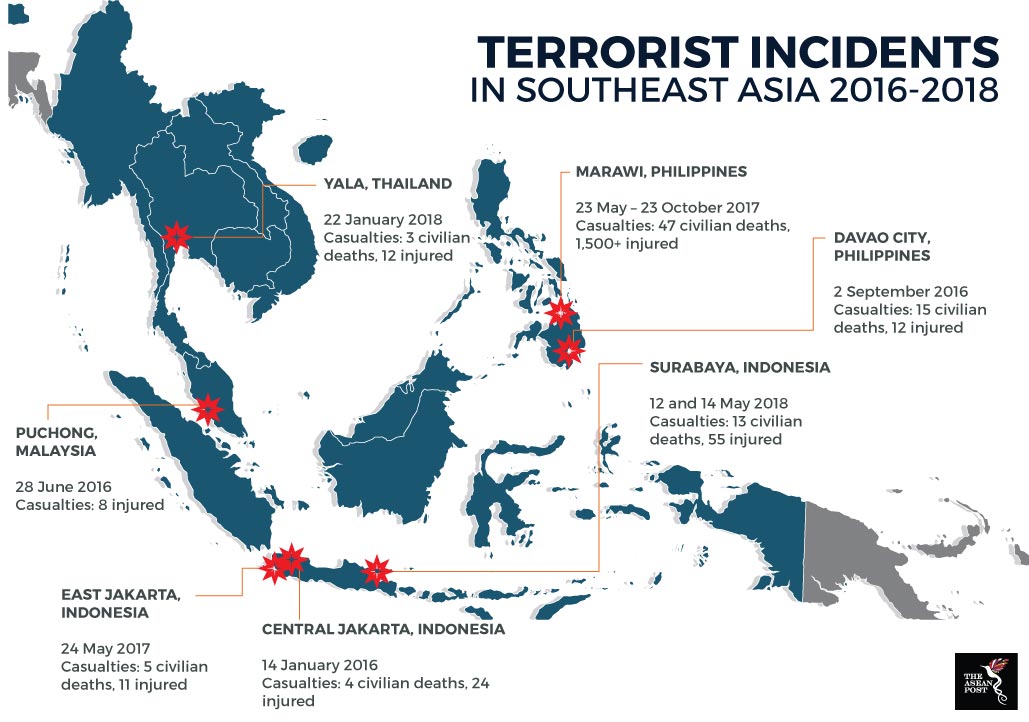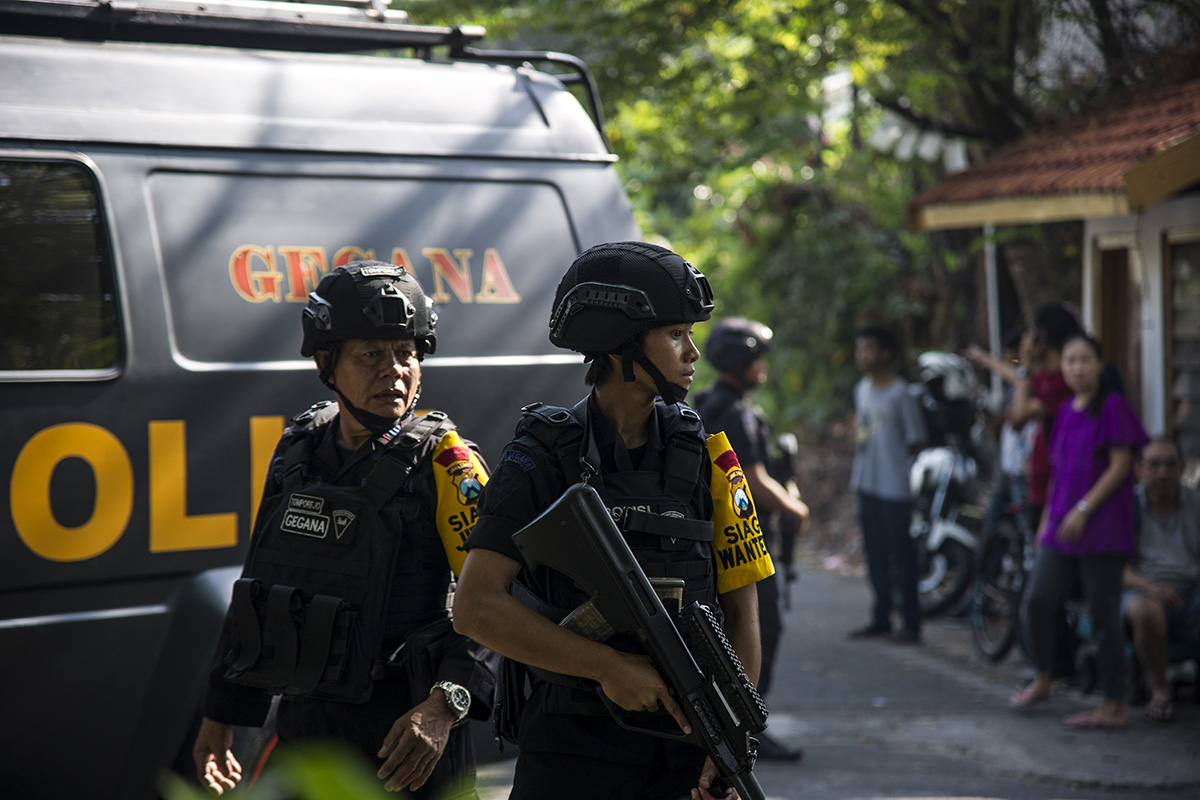Over the past week, Indonesia has witnessed two terrorist attacks. On 9 May, a family of six, including a nine-year-old girl, targeted three churches in Surabaya killing at least 13 and injuring over 40 people. Less than a week later, on 14 May, another family of terrorists attacked the police headquarters in the same city, resulting in at least four police officers and six local residents being injured.
The two terrorist attacks killed 18 people, including the bombers, making this the deadliest bombings in Indonesia since the 2005 Bali bombings which killed 23. Prior to the attacks, Islamic militants instigated a riot at a police detention centre on the southern outskirts of Jakarta. The standoff between the police and the militants left five guards and one detainee killed.
So far, Jamaah Ansharud Dauliah (JAD) has claimed responsibility for the attacks. JAD was formed relatively recently in November 2015, and according to local media reports, forms the largest faction of Islamic State (IS) supporters in Indonesia. Members of the faction include notorious extremist cleric Abu Bakar Bashir.
New Wave Of Terror
The recent bombings have brought about fears of a new wave of terrorist attacks in Indonesia. What’s more troubling is that the 9 May church attacks could signify a return to civilian targets for terrorists. Over the past five years, previous attacks in Indonesia have largely targeted institutions – specifically the police force.
The 9 May church attacks call to mind similar bombings carried out by Jamaah Islamiah (JI) in the early 2000s. JI’s targets then mostly comprised Christian civilians and tourists. On Christmas Eve in 2000, JI carried out four bombings at four different churches in Indonesia. Much like JI, the church bombings in Indonesia last week were also carried out on a Sunday, a day of worship and rest for Christians.
There are also fears that the IS is now focusing its efforts on terror attacks in other parts of the world, particularly outside the Middle East, where it has lost many of its strongholds as a result of US and Syrian counter terrorism measures. However, attacks perpetrated by IS cells have continued despite these losses. Aside from the Indonesian attacks, Paris recently witnessed a knife attack that killed one and injured four others, for which IS has claimed responsibility. While defeat in the Middle East is likely for the jihadist group, the threat posed by its members and cells is undiminished.
In Southeast Asia, the scourge of Islamic terrorism has yet to be fully eradicated. In the last two years alone, there have been at least six major terrorist incidents in the region. One of the most dire was the “Battle of Marawi,” where a coalition of Islamist groups under the IS umbrella laid siege to the town of Marawi in the Philippines. That military siege left 47 civilians dead and most of the town’s population displaced.

Sources: Various sources
Regional Solutions
The pervasive threat of terrorism in the region requires a strong response from ASEAN member states. In the aftermath of the recent Indonesian attacks, President Joko Widodo demanded that the House of Representatives expedite revisions to the nation’s anti-terrorism laws, which have been ongoing for the past two years. The revised legislation would give greater powers to the Indonesian state authorities to combat terrorism.
However, individual state action is not enough, as terrorism in Southeast Asia is a transnational concern. According to Sidney Jones, who served as the Institute of Policy Analysis of Conflict (IPAC) director during the Yusof Ishak Institute’s Regional Outlook Forum in January, the presence of a coalition of IS affiliates in Marawi last year indicates that regional terror groups have started working together. She added that IS forces fighting at the Battle of Marawi received help from a significant number of IS converts from outside the island of Mindanao, as well as from foreign operatives hailing from Malaysia and Indonesia.
The cooperative nature of Islamist terror groups in the region highlights the fact that the threat of terrorism is a regional one.
ASEAN needs to come up with a proper regional and cooperative framework to eradicate such terror threats from the region. The recent 32nd ASEAN Summit held in April saw ASEAN leaders pledging support for the Joint Statement by the ASEAN Defence Ministers on Countering Terrorism. Unfortunately, such pledges take place every summit, but ASEAN has yet to take decisive action on the terrorism issue.
The prevalence of insurgent attacks across the region over the past five years shows that current strategies are not sufficient to safeguard the security of ASEAN member states. As terrorism rears its ugly head again in Indonesia, ASEAN must rethink its approach to preventing such tragedies from repeatedly occurring.
